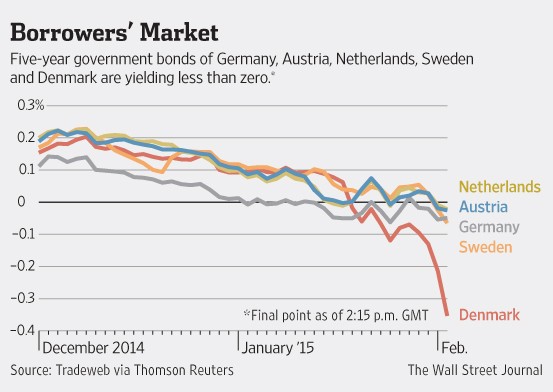Make Money with HighYield Corporate Bonds
Post on: 14 Апрель, 2015 No Comment

by Breanna Redwin
There are numerous options for investors interested in stepping into the corporate bond market. Many put their money into investment-grade corporate bonds for safer, more secure returns. Others choose to diversify with high-yield corporate bonds, also known as junk bonds. Although potentially insecure, it is possible to make money with a riskier corporate bond investment. By using flexible finances and understanding risk, purchasing junk bonds can turn out to be a profitable venture.
What are High-Yield Corporate Bonds?
High-yield corporate bonds are issued by companies with sub-par credit ratings. They have somewhat of a negative connotation, being referred to as junk bonds and below-investment grade, inferring that they should not be touched. Without some insight and awareness, these particular investment instruments can be risky. In the correct circumstances, they can bring in high returns.
When a company needs financial resources to fund projects, to pay salaries, to expand, or even to pay off other debts, they have to raise money. One way to do this is to issue a bond. Corporate bonds come in a range of risk levels, interest rates, and yield levels. One of the characteristics of a bond is the rating. Private institutions such as Moody’s Investor Service. Fitch IBCA. and Standard and Poor rate bonds according to the predicted likeliness that the investment will be paid on time and in full. Bonds with higher ratings, have safer, yet smaller yields. Bonds with lower ratings come with a higher interest rate to match the increased risk.
High-yield corporate bonds are those with sub-standard ratings. For example, a bond with a rating of BAA or less, according to Moody’s. would be a junk bond. There are a number of reasons for a corporate bond rating to be low. They could be a new business that has not had the opportunity to build up a good credit rating. They could also be a financially sound corporation that had recently come into trouble and was not able to make past payments on time. They could also be a business on the brink of financial disaster. In some cases it will be worthwhile to invest in sub-investment grade corporate bonds; in other cases it will not.
How to Make Money with Junk Bonds
Is it possible to make money with high-yield, yet high-risk corporate bonds? It is, but not all the time, and not without an awareness of the true potential for gain or loss. For this reason, junk bonds are ideal for those with extra money to invest and the patience to do some financial research. Investors who have already expanded their assets through investing in low-risk investments, or have extra capital for other reasons may want to look into the high-yield corporate bond market.
First, do the research. Many huge companies, even Fortune 500 companies, have issued junk bonds. These have the potential to be great investments as the chances of the company defaulting are rather low. Also, assets to liquidate in the case of a default should be enough for most, if not all bond holders to maintain most of the value of their investment. Relatively new businesses with a strong financial foundation are also likely to perform well despite their low-grade connotation. A company in serious financial trouble however, should probably be avoided despite the draw of high interest rates.
Second, evaluate the market scenario as a whole. According to Sacha Gera’s article, High Yield Corporate Bonds —A Safe Short Term Play with a High Return? (August 4, 2009, Financial Post ), during a period of economic recovery, junk bonds are slated to do very well. This is still risky however as many companies can still default during a period of recovery, and when the market is truly in recovery mode is debatable. If the market is unbalanced, and for example, Federal interest rates are raised, then the value of an already risky investment drops.
Third, consider investing in a high-yield mutual fund. Spreading the risk of many companies among many investors is a way to lessen the negative dips in high-risk instruments such as high-yield corporate bonds. Still take the time to investigate the favored securities of the fund and turnover rates of investments, and evaluate risk and potential while considering the cost of entering a particular fund.
Dangers of Investing in High-Yield Corporate Bonds
Investing in corporate bonds, whether high-yield or investment grade, can be a risky venture. There are myriad reasons that a corporation may have to default on their debts, from shifts in the market to government actions. For this reason, it may be wise to put money into junk bonds when the market is either strong, or definitely recovering. When the time is right, the high-yield corporate bonds may be a profitable addition to a diverse financial portfolio.
Sources:
Levinson, Marc. The Economist: Guide to Financial Markets . Third Edition (Bloomberg Press, 2003).
Merkel, Steven. Are High-Yield Bonds Too Risky? (Investopedia ).
Securities Industry and Financial Markets Association














